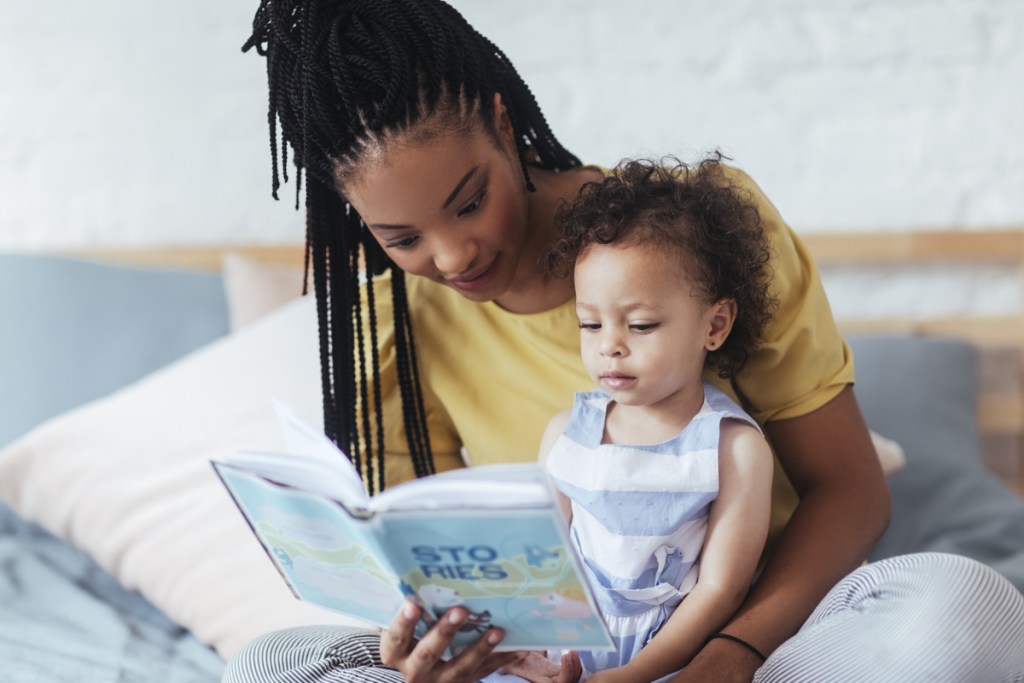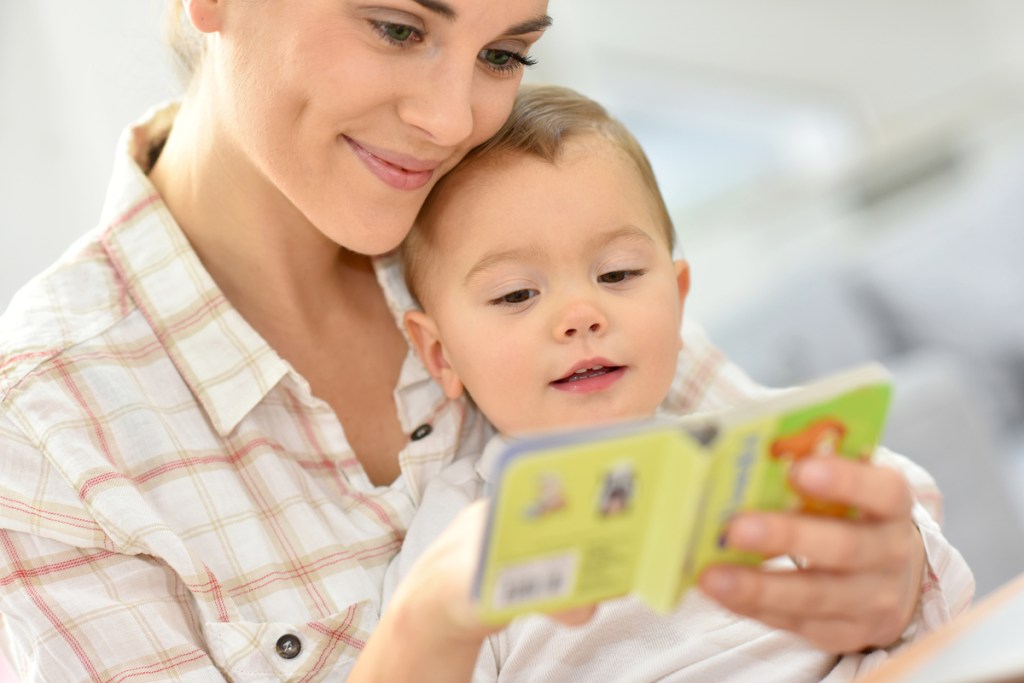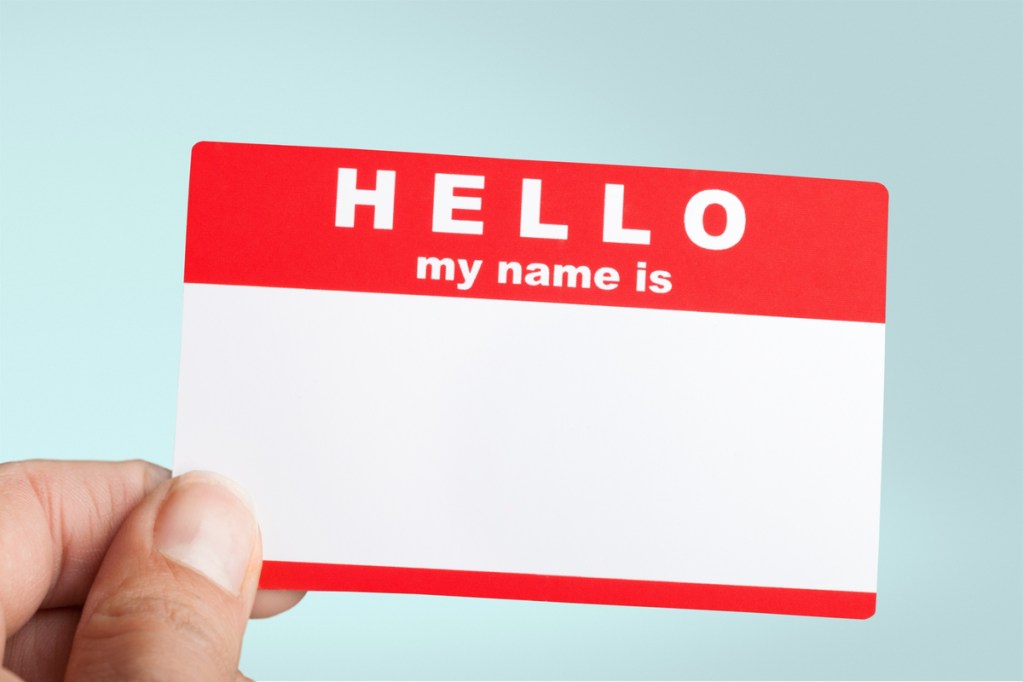
Learning to read is a critical milestone for all children. It’s a skill they will use throughout their lives, and fostering a love of reading at an early age will help them as they progress through school. As an adult, reading is an essential part of every day.
Since reading is so vital, it’s easy for parents of young children to wonder when they should start teaching a toddler to read. Is it even normal for a two-year-old to read? While some children will begin reading as early as age three, most children will not. Developmentally, many children begin to make the connection between letters, sounds, and words at the end of kindergarten or in first grade.
Early literacy experts have realized that, like most milestones, little ones begin their reading journey differently. The answer to the question when do you teach a toddler to read is essentially now, but you’re not teaching a toddler to read. Instead, you’re introducing toddlers to the wonders of reading.
How to teach a toddler to read is to show them the joy that’s found in books. Doing so is easy and fun with these nine simple steps that most definitely do not involve flashcards or apps.
Model reading

A voracious reader is typically exposed to books at an early age. The key to having a successful reader is to instill in your child the positives that come from reading. Forcing a child to read turns it into a chore and we all know how kids feel about that.
The first step on the road to reading for a toddler is to model reading at home. Toddlers want to do what parents do. When they see you reading a book, magazine, or even a cereal box, your kid will want to do the same.
Provide access to books

If you want a toddler to be interested in books, you need to have them around the house. Board books are ideal for babies and toddlers because they’re designed for little hands. Have a basket full of board books in the playroom and bedroom.
Add a couple of bathtime books in the bucket of tub toys and keep books in the car. When toddlers need something to keep them busy on a long car ride, have board books within easy reach. Having unlimited access to books also allows toddlers to learn the correct way to hold a book and how to turn pages. Both skills are early literacy milestones.
Bedtime story

Toddlers love to be read to. While they may have a short attention span, it’s still important to read aloud to them. If you haven’t already added a bedtime story to the nighttime ritual, do it now. Make it a practice, even on busy nights to have parents or older siblings read one or two bedtime stories to your toddler.
Reread books

Parents of young children have probably sat through the same movie multiple times with their little ones. It’s the same with books. Toddlers will want to hear favorites over and over again. While it’s important to expose kids to different books, it’s just as vital to reread books as well. Hearing stories and eventually being able to retell favorite stories is another important early literacy milestone for kids.
Attend a story time session

Libraries aren’t headed for extinction and a library plays a pivotal role in raising a reader. Most local libraries offer story time sessions for toddlers. Typically, toddler story time is for parents and caregivers too. Toddlers are introduced to stories, finger plays, music, nursery rhymes, storytelling, arts and crafts, and more.
Get a library card

Toddlers are too young for a library card, but if parents don’t have one, it’s time to get one. After a storytime session, stick around for a few minutes and allow your toddler to pick out a book or two to bring home. Make it a point to read the library books a couple of times before returning them the following week. It’s also a wonderful way to teach kids how to treat books with respect.
Display your child’s name

Their names are often among the first words children recognize. Name recognition is another vital early literacy skill. Displaying your toddler’s name on a bedroom door, in a coat, or on a book are all ways to encourage name recognition, as is a personalized name puzzle.
Puzzles

Age-appropriate puzzles with larger pieces or pegs made especially for little hands are perfect picks for toddlers. Puzzles help toddlers learn letters, colors, and numbers, which are all pre-reading skills. When sitting with your child at puzzle time, make sure to say the letters aloud as you both work together to put in a piece. Doing so helps with letter, number, color, and shape recognition.
Letter magnets

Get a set of letter magnets and put them on the refrigerator within reach. Use the letters together to spell your child’s name and other words, making sure to say them. Playing with letter magnets is a fun way for toddlers to get a jump on identifying letters and eventually making the connection to sounds and words.
The benefits of reading

Teaching your toddler to read and reading to your younger child benefits everyone. A study conducted by Rutgers University found decreased disruptive behavior in children who had parents who read to them early and also saw less harsh parenting among those who read to their children.
Reading to your children helps with their brain development and vocabulary, and studies have shown that children who are read to have an easier time learning to read. Even if your child is too young to start reading, they learn speech sounds by listening to their parent when they read. It also helps with their social and emotional development as well as their listening skills.
Reading is such a vital component of your toddler’s early childhood learning experience. A positive reading experience puts your little one on the road to potentially being an early reader. If not, don’t worry. Every toddler learns at his or her own pace, but a literacy-rich environment puts them on the path.



